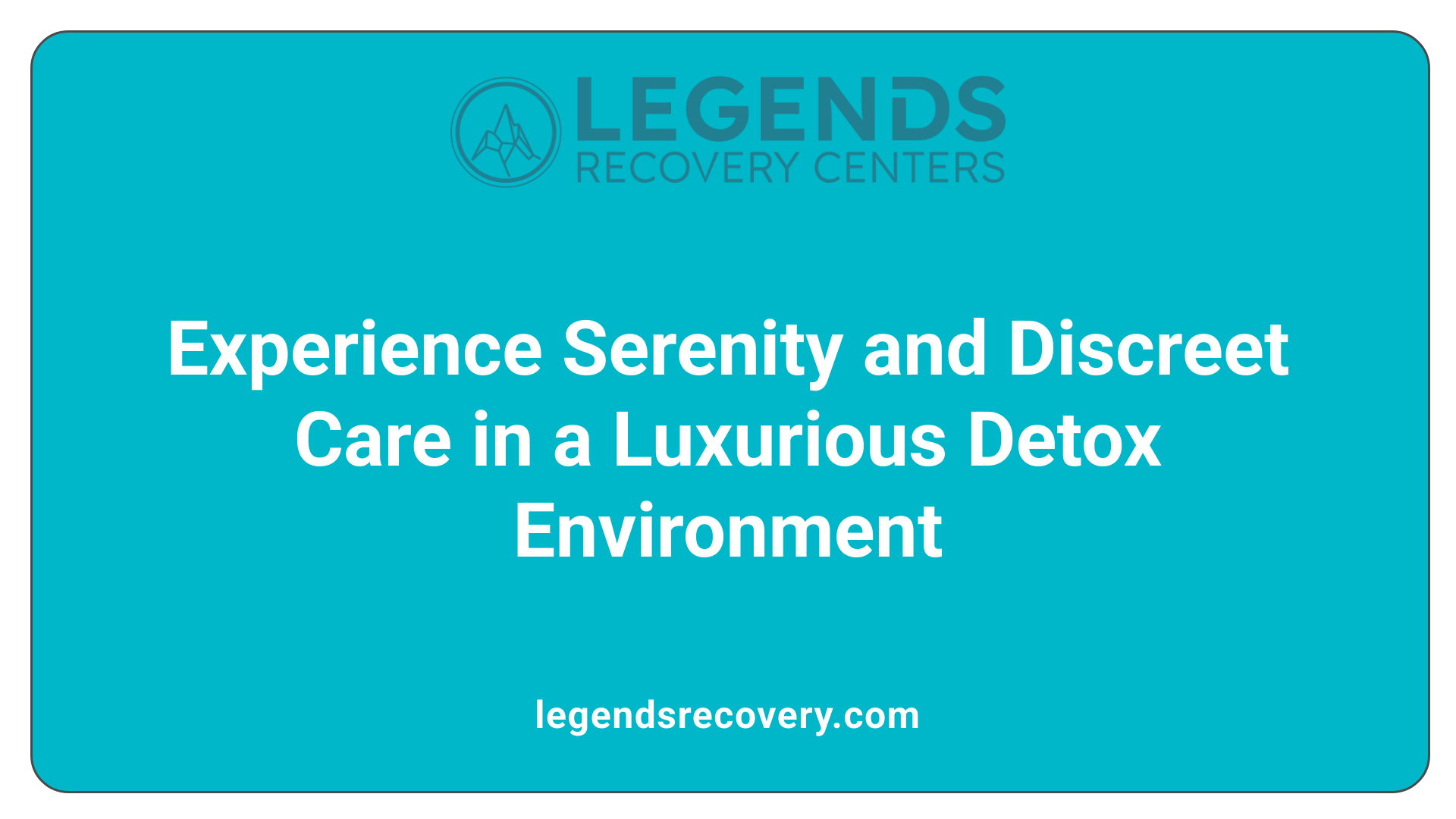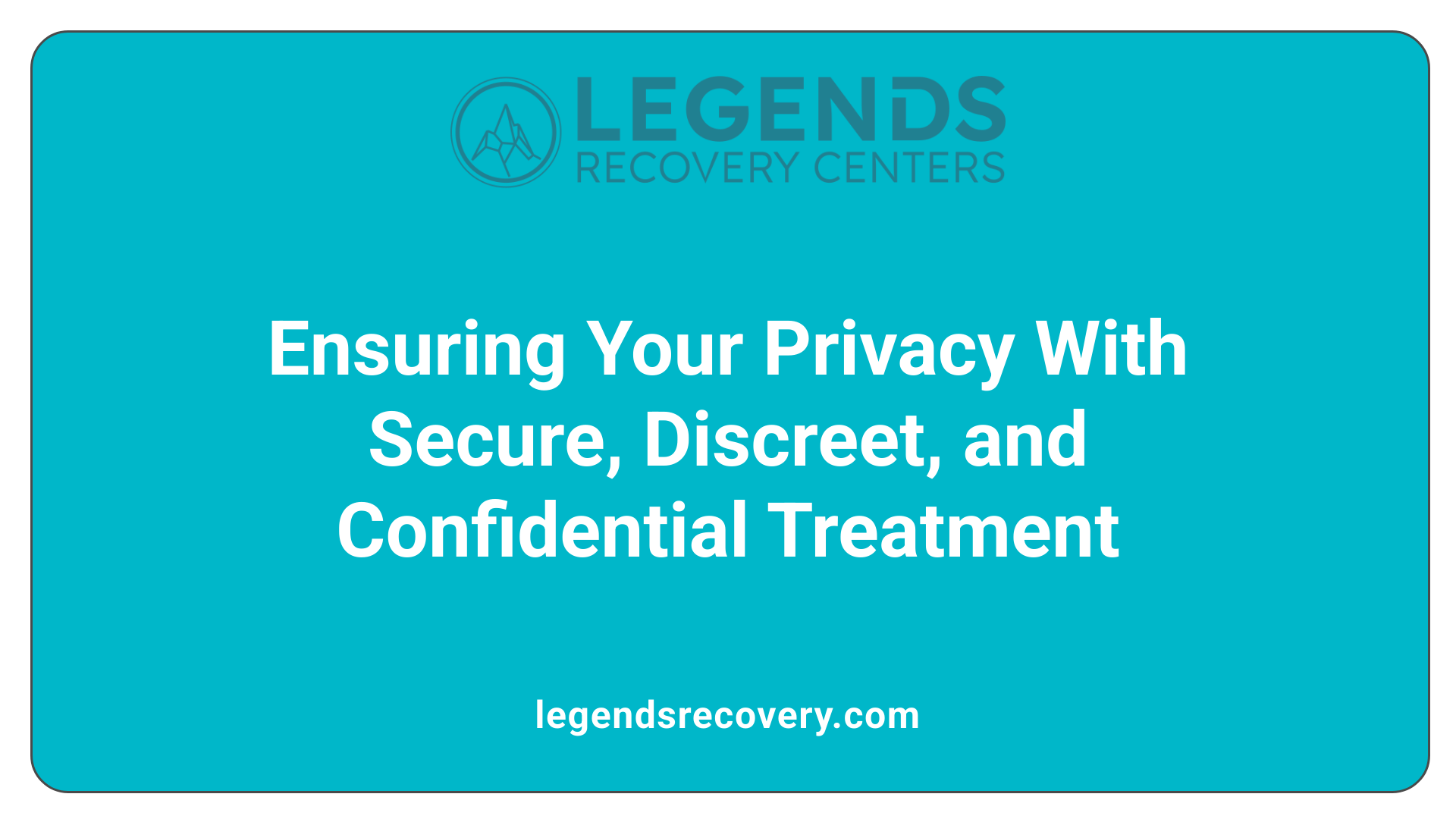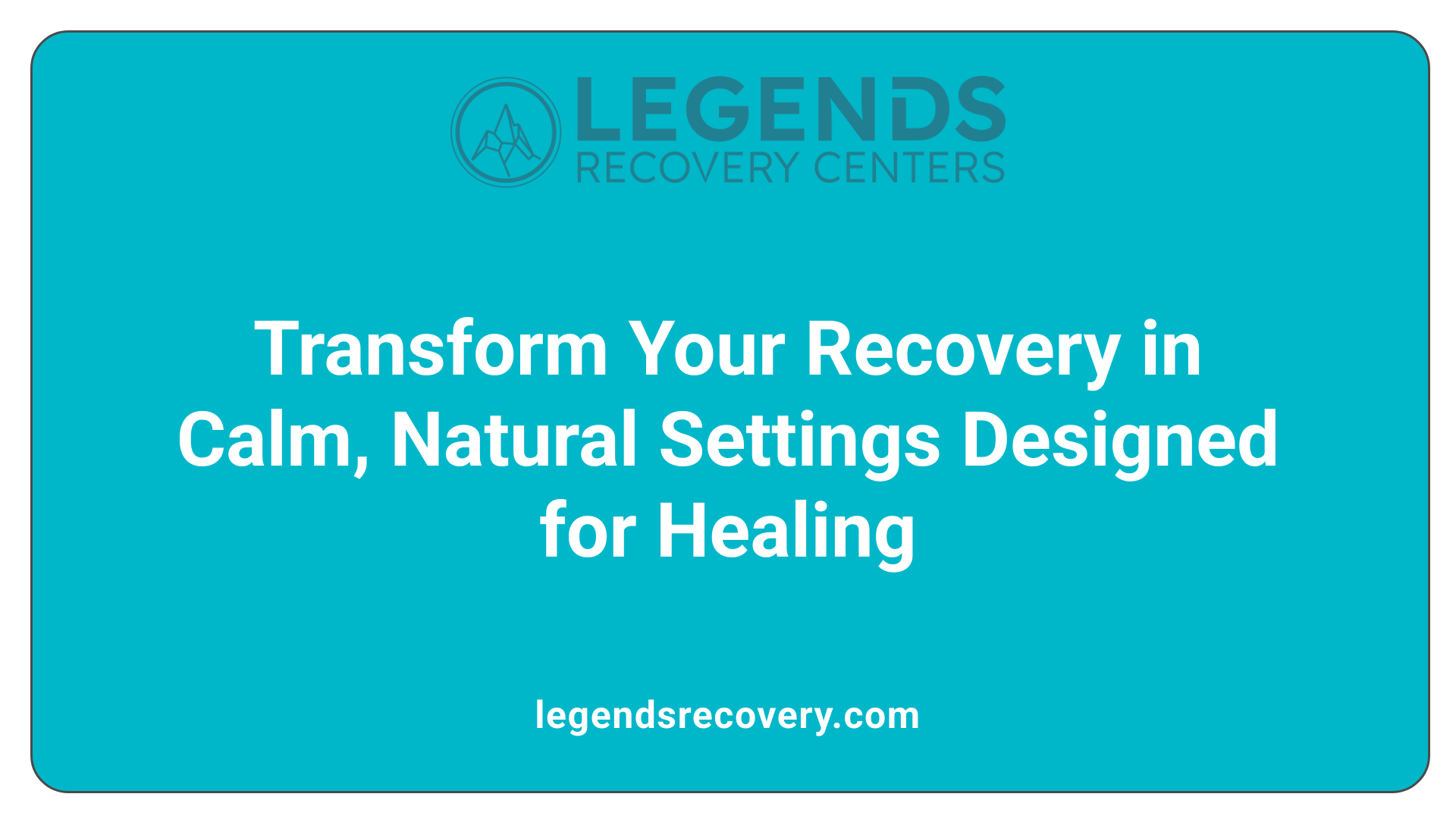Luxury Rehab: A Sanctuary for Heroin Detox and Recovery

The journey to recovery from heroin addiction is a critical phase that demands not only medical support but also comfort, privacy, and holistic care. Luxury rehab centers have redefined this experience by integrating high-end amenities, serene environments, and personalized treatment modalities. This article explores how these upscale facilities create a safe, supportive, and effective detox process for individuals battling heroin dependence.

Choosing a luxury rehab for heroin detox offers significant advantages over standard treatment facilities. These centers provide personalized and comprehensive care tailored to each individual, often with lower staff-to-patient ratios that ensure more attentive and immediate support. The environment in luxury rehabs is designed to be comfortable and inviting, featuring private rooms, upscale amenities such as spas, gourmet meals, and wellness activities like yoga, massage, and acupuncture. This welcoming setting can reduce stress and anxiety, fostering a more positive detox experience.
Luxury rehabs also offer a wider range of therapies, including holistic approaches like art and music therapy, experiential therapies, evidence-based treatments such as cognitive-behavioral therapy (CBT), and specialized care for co-occurring mental health conditions such as depression, bipolar disorder, and PTSD. Enhanced privacy measures, including gated entrances, security personnel, and strict confidentiality protocols, make these centers especially appealing to high-profile individuals seeking discreet treatment.
Ultimately, the serene environment, personalized attention, and diverse therapeutic options support better engagement in treatment, a smoother detox process, and improved chances for long-term sobriety.
Luxury rehab facilities are equipped with a multitude of amenities designed to promote comfort and recovery during heroin detox. Private accommodations with single-occupancy rooms and luxurious furnishings provide a safe haven for clients. Gourmet meals prepared by professional chefs, dietary counseling, and organic food options ensure proper nutrition essential for healing.
Holistic amenities play a central role, including spa treatments, massage therapy, acupuncture, fitness centers, yoga studios, and outdoor relaxation areas like landscaped gardens and scenic views. These features help reduce withdrawal stress and promote emotional balance.
Additional conveniences include 24/7 security, private balconies, entertainment systems, on-site laundry, and seamless connectivity, allowing clients to stay connected with loved ones or continue work if necessary. The overall environment fosters a sense of peace and stability, making the detox journey more manageable.
The environment of luxury rehabs is carefully crafted to foster relaxation and emotional well-being, which are vital during heroin detox. Natural light, tranquil decor, scenic surroundings—such as beaches, mountains, or lush gardens—help create a calming atmosphere that minimizes stress and anxiety.
Holistic practices like meditation, yoga, acupuncture, and nutritional therapy contribute to physical and mental stabilization. These therapies support the body's natural healing processes and bolster resilience during withdrawal.
Moreover, round-the-clock medical support ensures safe management of symptoms, providing reassurance and security to clients. The structured yet serene environment encourages focus and resilience, increasing the likelihood of successful detox and a strong foundation for continued recovery.
Safety is paramount in luxury heroin detox programs. They adhere to the highest standards of medical care, with continuous monitoring of vital signs and medication management by trained healthcare professionals. Evidence-based medications like buprenorphine, methadone, and naltrexone are used judiciously to safely address withdrawal symptoms.
These centers conduct thorough initial assessments to develop individualized detox plans, and ongoing re-evaluations ensure personalized adjustments. Security measures such as gated access, surveillance systems, and on-site security personnel protect patient privacy and safety.
In addition, holistic and recreational therapies are incorporated within strict hygiene and safety protocols. Emergency preparedness and mental health support further bolster safety during the potentially challenging detox phase.
Luxury rehab centers offer a broad spectrum of treatment modalities, combining pharmacological, psychological, and holistic therapies. Medications like buprenorphine, methadone, and naltrexone play a critical role in managing withdrawal symptoms and cravings.
Psychosocial therapies—including CBT, motivational interviewing, family therapy, and relapse prevention—address underlying behavioral and emotional issues. Experiential therapies such as art, music, and outdoor activities like equine therapy help facilitate emotional expression and healing.
Holistic treatments, including yoga, meditation, massage, acupuncture, and breathwork, are integrated to support emotional stability and physical detoxification. These comprehensive programs aim to reduce discomfort, foster resilience, and build skills for sustained recovery.
Upon admission, luxury rehabs conduct extensive assessments covering physical health, mental well-being, social support structures, and co-occurring conditions. This thorough evaluation informs the creation of a highly individualized treatment plan.
The plan incorporates medication management, therapy sessions, holistic modalities, and lifestyle adjustments, all tailored to the patient’s specific needs. Regular re-assessment sessions ensure the treatment remains aligned with progress, making adjustments as necessary for optimal safety, comfort, and efficacy.
This careful, personalized approach maximizes recovery potential and enhances the overall detox experience.
Holistic therapies are integral to the detox process at luxury centers. Approaches such as music therapy, art therapy, meditation, yoga, acupuncture, and massage foster relaxation, reduce stress, and address emotional and physical discomfort.
These therapies not only alleviate withdrawal symptoms but also promote emotional balance, resilience, and a positive outlook. Incorporating holistic practices complements medical treatments, making detox smoother and less traumatic.
The synergy of conventional and alternative therapies encourages a comprehensive healing process, enhancing the likelihood of long-term recovery and ongoing well-being.
Luxury rehabs emphasize continuous care through extended aftercare programs. These may include follow-up therapy, support groups, relapse prevention strategies, and life skills coaching.
Such support helps patients transition smoothly back into everyday life, maintains motivation, and manages challenges that could trigger relapse. Some centers also offer outpatient services, sober living arrangements, and remote counseling options.
By providing ongoing emotional support, education, and community connections, these programs help sustain sobriety and foster a resilient, health-focused lifestyle post-treatment.
Luxury rehab centers offer a well-rounded, personalized approach to heroin detox that combines traditional medical therapies with holistic and behavioral treatments. Medications such as buprenorphine, methadone, and naltrexone are commonly used to manage withdrawal symptoms, reduce cravings, and prevent relapse.
Alongside pharmacotherapy, these centers emphasize a variety of psychosocial therapies. Cognitive-behavioral therapy (CBT) helps patients identify and change harmful thought patterns and behaviors related to substance use. Motivational interviewing encourages clients to find their personal motivation for recovery, while relapse prevention strategies aim to prepare individuals for long-term sobriety.
The treatment plan is further enriched with family therapy, group sessions, and individual counseling, guided by multidisciplinary teams comprising doctors, psychologists, and addiction specialists. This comprehensive approach ensures that underlying mental health issues, social challenges, and emotional needs are addressed.
Holistic therapies also play a significant role. Activities such as acupuncture, yoga, meditation, and recreational therapies are integrated into the program to support emotional stabilization and physical wellness. Many centers also include art, music, equine therapy, and massage to promote relaxation and self-awareness.
Post-detox, ongoing support is facilitated through self-help groups like Narcotics Anonymous and community-based social services, which are vital for maintaining long-term sobriety and addressing social reintegration.

Luxury heroin detox programs prioritize the safety and well-being of their clients through strict clinical protocols and comprehensive security measures. These centers employ highly trained medical staff equipped to monitor patients continuously, ensuring that vital signs are tracked at all times. They utilize evidence-based medications such as methadone, buprenorphine, and naltrexone to manage withdrawal symptoms safely, minimizing discomfort and reducing health risks.
Personalized treatment plans are crafted after thorough assessments of each individual’s physical and mental health, which are then regularly adjusted to respond to ongoing needs. The safety environment is further enhanced by advanced security systems, including gated entrances, surveillance cameras, and on-site security personnel, all designed to protect patient privacy and physical safety.
Holistic approaches such as massage, acupuncture, yoga, and other stress-relief therapies complement medical care, supporting emotional stability during detox. Emergency preparedness is a core part of safety protocols, with rapid response capabilities in place for any medical or psychological emergencies. These centers emphasize not only medical safety but also creating a serene, private environment conducive to successful recovery.
Luxury rehab centers are committed to maintaining the highest levels of confidentiality. They adhere strictly to HIPAA regulations, which govern the privacy and security of health information. All patient data is securely stored and only accessible to authorized personnel.
Non-disclosure agreements are standard for staff members, ensuring that personal and treatment details remain confidential. Facilities employ multiple layers of security, including gated entries, security guards, and surveillance to prevent unauthorized access and ensure discretion.
The physical layout of these centers often includes secluded grounds and private entrances, designed to minimize exposure and maintain confidentiality. Discrete residential settings and private treatment areas further enhance privacy, allowing clients to focus solely on recovery without concern over exposure.
These privacy measures are especially important for high-profile individuals who value discretion. Combined, these protocols create an environment of trust and confidentiality, making luxury rehab centers an ideal choice for those seeking discreet, secure detox experiences.
| Aspect | Description | Additional Details |
|---|---|---|
| Medical Safety Standards | 24/7 monitoring, evidence-based medication use, personalized plans | Trained staff, rapid emergency response, secure environment |
| Security Measures | Gated entrances, guards, surveillance cameras | Restricted access, discreet location, secure grounds |
| Privacy Protections | HIPAA compliance, non-disclosure agreements | Confidential data handling, private treatment spaces |
| Holistic and Stress-Relief Therapies | Massage, acupuncture, yoga, meditation | Support emotional health, reduce stress |
| Emergency Protocols | Immediate response teams, medical retreat readiness | Preparedness for medical or psychological crises |
These combined strategies ensure that patients undergoing detox in luxury centers experience treatment in a secure, private environment, facilitating focus and comfort during a critical recovery phase.

The setting and ambiance of luxury rehab centers play a crucial role in supporting heroin detoxification. These facilities are often nestled in serene locations such as mountains or along coastlines, providing a tranquil and secluded environment. Such natural surroundings help reduce stress and anxiety, which are common hurdles during withdrawal.
Natural elements like fresh air, sunlight, and scenic views foster relaxation, emotional stability, and a sense of peace for patients. The calming environment minimizes external distractions, allowing individuals to focus fully on their recovery journey.
Luxury centers also incorporate holistic practices that further promote physical and mental well-being. Therapies such as yoga, meditation, acupuncture, and massage therapy are integrated into daily routines. These activities help lower stress levels, ease physical discomfort, and enhance emotional resilience during detox.
In addition to outdoor and natural features, lush landscaped gardens and outdoor relaxation spaces offer tranquil retreats for clients. These scenic outdoor areas enable patients to engage with nature, which has been scientifically shown to reduce cortisol levels and support mental health.
The overall atmosphere is designed to provide a secure, supportive, and stress-free environment. This is complemented by state-of-the-art amenities like private suites, gourmet meals, and spa services, all aimed at making the detox process as comfortable as possible.
Crucially, these environments are equipped with round-the-clock medical supervision and therapeutic support. This combination ensures that withdrawal symptoms are managed safely and effectively while fostering a sense of stability and confidence.
In summary, the environment and atmosphere of luxury rehabs are carefully crafted to nurture emotional calm, physical comfort, and mental clarity. By creating this supportive and serene setting, these centers significantly increase the likelihood of successful heroin detoxification and lay a strong foundation for lasting recovery.

Luxury rehab centers prioritize not only immediate detox and treatment but also the long-term success of their clients. To achieve this, they often extend their care through comprehensive aftercare programs. These programs usually include ongoing therapy sessions, relapse prevention strategies, access to support groups, and personalized life skills coaching.
Extended therapy can consist of individual, group, or family counseling, which helps individuals process their experiences, reinforce their commitment to sobriety, and address any underlying mental health issues. Support groups, such as alumni networks or community-based programs, provide a sense of belonging and ongoing accountability.
Relapse prevention programs are tailored to each person’s needs, focusing on coping skills, stress management, and recognizing early warning signs of relapse. Life skills coaching aims to rebuild confidence and independence, equipping individuals with tools to handle everyday challenges without turning to substances.
These combined efforts create a solid foundation for sustaining sobriety and adapting to life after rehab. They ensure that clients continue to receive guidance and support, fostering resilience and motivation for ongoing health.
| Support Components | Description | Additional Details |
|---|---|---|
| Continued Therapy | Regular counseling sessions | In-person or virtual, tailored to evolving needs |
| Support Groups | Peer-led recovery groups | Foster community and accountability |
| Relapse Prevention | Customized plans and skills | Focus on early intervention |
| Life Skills Coaching | Practical skills and confidence building | Time management, stress reduction, and personal development |
Life skills development is a cornerstone of long-term recovery. Centers focus on empowering individuals to handle real-world situations confidently, including financial management, communication, and emotional regulation.
Furthermore, they connect clients with community resources such as local support groups, employment assistance programs, and ongoing counseling services. These connections facilitate smooth reintegration into daily life.
Luxury facilities often provide workshops and activities designed to strengthen these skills, enabling clients to build a balanced, sober lifestyle post-treatment.
Holistic therapies like yoga, meditation, acupuncture, and massage continue beyond detox to support mental clarity, emotional stability, and physical health. These practices help manage stress and prevent relapse.
Many centers integrate alternative therapies into their aftercare programs, promoting overall well-being. Patients are encouraged to include these practices in their daily routines, fostering resilience and a proactive approach to sobriety.
This comprehensive approach—combining medical treatment, mental health care, life skills, community engagement, and holistic therapies—creates a supportive environment that nurtures long-lasting recovery and sustains wellness.
| Aspect | Focus | Long-Term Benefits |
|---|---|---|
| Aftercare and Support | Extended therapy, groups, relapse prevention | Stability, accountability |
| Life Skills & Community | Financial, emotional, social skills | Independence, productive living |
| Holistic & Alternative | Yoga, meditation, massage | Stress reduction, emotional balance |
Centering ongoing support on these pillars ensures individuals are equipped, motivated, and connected to sustain their sobriety well beyond their initial treatment in luxury rehab centers.
Luxury rehabs stand out as premier destinations for heroin detox by offering an environment that combines safety, comfort, privacy, and holistic care. Their comprehensive approach addresses the physical, emotional, and psychological aspects of recovery, significantly enhancing the detox experience. With a focus on personalized treatment, serene surroundings, and holistic therapies, these facilities pave the way for sustainable sobriety and overall well-being, making them an optimal choice for those seeking an elevated recovery journey.